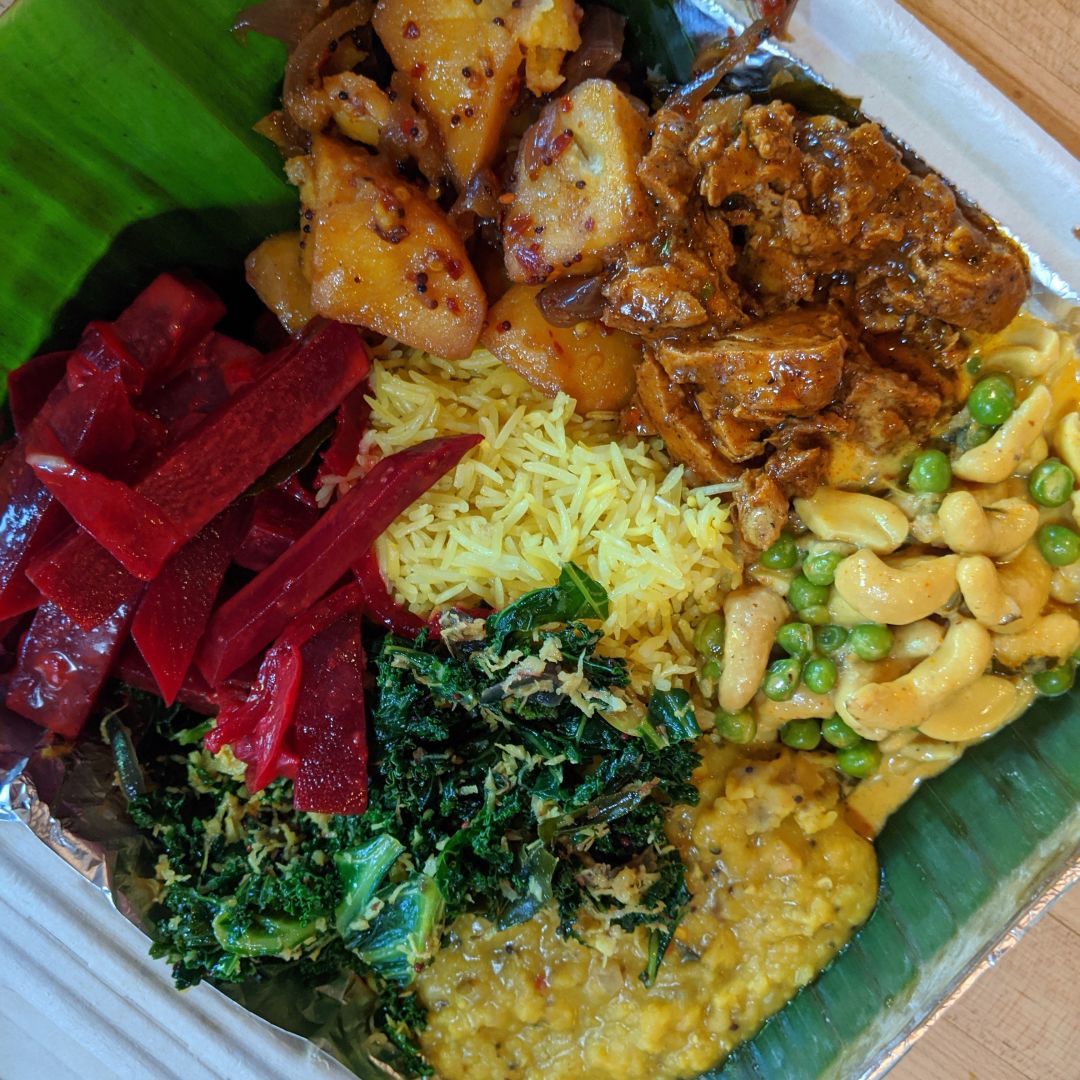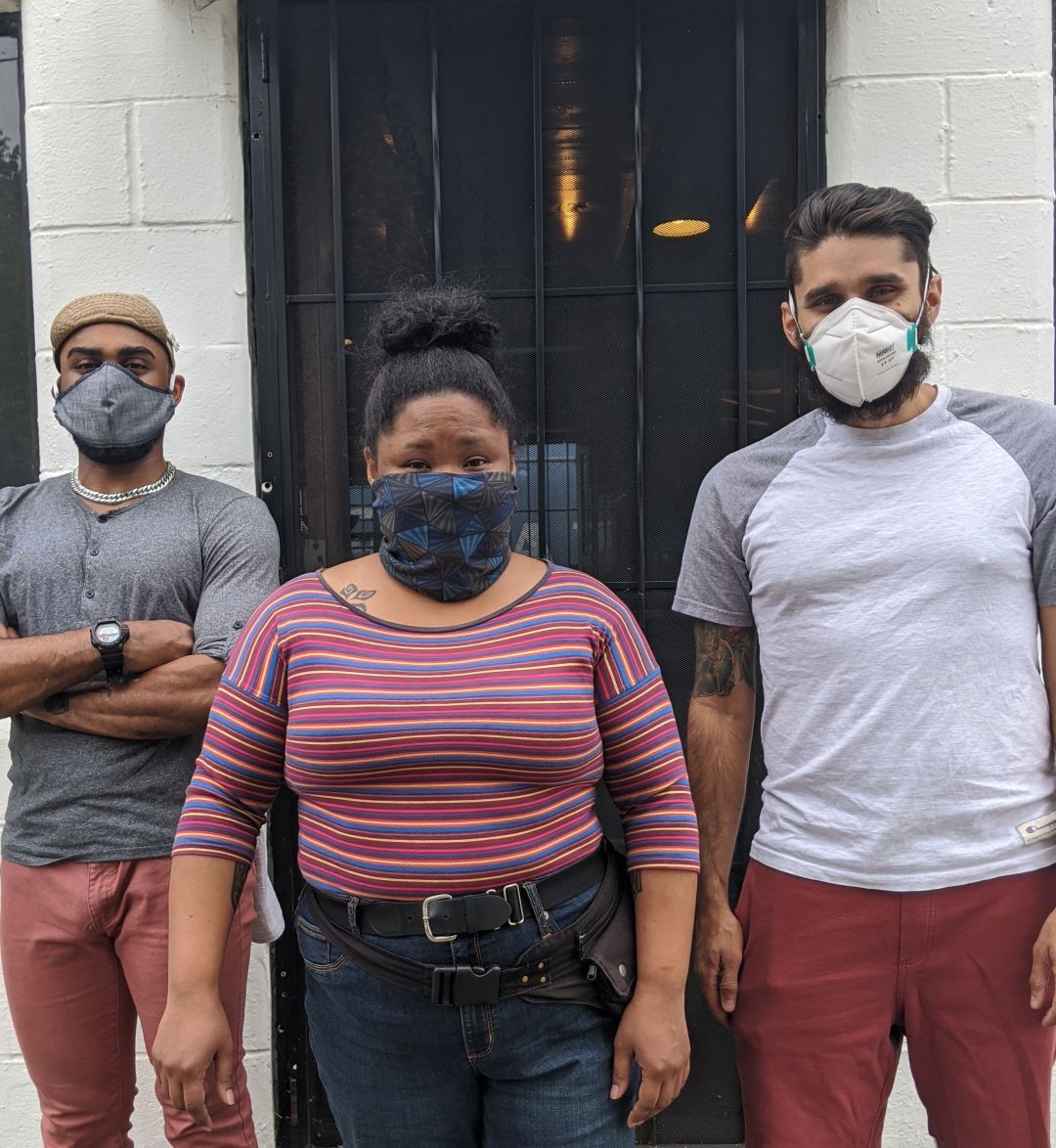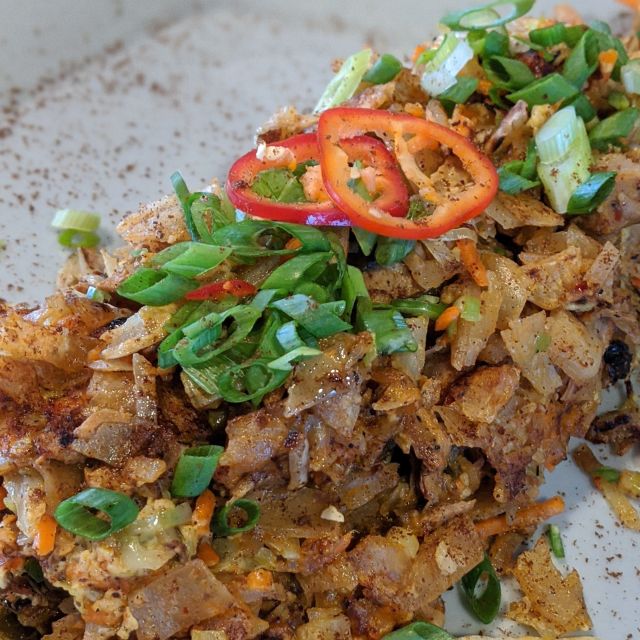Mirisata, Portland’s Only Sri Lankan Pop-Up, Is Looking for a New Home

A plate of rice and curry from Mirisata is a takeout feast.
Image: Courtesy of Mirisata
Everything about Mirisata feels fresh, exciting, and quietly revolutionary. It’s the first and only Sri Lankan pop-up in Portland, and it’s vegan to boot. The pop-up is also entirely BIPOC worker-owned. But Mirisata hit a bump in the road today: the three-person collective just got word that it has to vacate its location in Northeast Portland to make way for a long-term tenant. Mirisata’s last pop-ups will be held this Friday and Saturday until they can find a new home.

Simar, Rochelle, and Alex are the three worker-owners of Mirisata.
Image: Courtesy of Mirisata
So if you haven’t already tried Mirisata, this is me urging you to visit their website to preorder dinner for Friday or lunch for Saturday. The Friday rice and curry plates are stunningly plated feasts, all atop a banana leaf inside a takeout box. Choose from a spicy vegan chicken curry with lemongrass, garlic, and ginger, or a milder, more fragrant jackfruit curry in coconut milk. This week’s veggies include kabocha in coconut curry, ridged gourd in turmeric and coconut milk curry with curry leaves and rampe, stir-fried long beans, and dry-roasted cabbage and coconut, accompanied by this week's sambol made from fresh coconut, onion, lime, and chili. Yellow basmati rice scented with pandan and crisp papadams round out the meal.

For Saturday lunch, Mirisata will serve a vegan version of kottu, Sri Lanka's most popular street food.
Image: Courtesy of Mirisata
For lunch on Saturday, Mirisata will serve kottu, Sri Lanka’s most popular street food, which consists of your chopped-up carb of choice (roti or vermicelli noodles) stir-fried with vegan chicken or jackfruit curry, vegan Just Egg, onions, and veggies.
The impending loss of their current kitchen space isn’t the first obstacle Mirisata has faced. At first, Mirisata was supposed to be a pop-up, sit-down dinner series at the vegan South American restaurant Epif, but the series ended in March after just one dinner, due to the pandemic. The team decided to close completely until they could figure out safe pick-up protocols. The pop-up re-opened for takeout on Fridays and Saturdays starting in June.
Mirisata has found a sizable following in the eleven weeks since it began takeout service. It’s served over a thousand plates of rice and curry. It’s also gained fans in the Sri Lankan community, and many drive from Hillsboro every Friday to pick up a plate of rice and curry.
“That is the most flattering and humbling thing that has happened from this,” says Alex, a co-owner and the founder of Mirisata, who asked us to refer to members of the collective by first name only to emphasize the collective over the individual. “I’m a first generation, half Sri Lankan...but really, the food was the only connection I had growing up to Sri Lanka. It’s been a really amazing journey to be learning about it, and it’s super flattering that we have regular customers from the Sri Lankan community.” The team hopes that its to-be-determined future location—small, but with outdoor seating—will be closer to a freeway to make it easier for people from the suburbs to access the restaurant.
But it’s not just the food that sets Mirisata apart—it’s also its business model as a worker-owned cooperative. Alex, who has been vegan for 17 years due to animal rights concerns, began cooking Sri Lankan dinners for friends, and soon those dinners expanded to include friends of friends.
Without experience working in restaurants, Alex didn’t feel like he could scale up his recipes successfully. So he posted an intentionally vague ad, along the lines of: "Looking for someone to cook an Asian cuisine not currently represented in Portland. The food is completely vegan. A pop-up with the potential to turn into a truck or restaurant. Worker-owned cooperative."
Simar, a chef who’s been in the restaurant industry for ten years cooking mostly vegan food, responded to the ad. Though he’d never tried Sri Lankan food before, he loved Indian food and spicy food, and joined Mirisata as its second member. Next, Rochelle, a talented home cook who specializes in vegan Filipino food, joined Mirisata as its third co-owner, though she, too, was new to Sri Lankan food.
“I don’t feel comfortable with the idea of people working, providing labor, and not keeping the wealth that that labor generates,” Alex says. “I don’t have the skills to actually make this into a real pop-up or a real restaurant. I just had an idea, some recipes, some knowledge about the cuisine.”
For both Simar and Rochelle, it’s their first time being worker-owners. Alex hopes that the worker-owner model will eliminate the hierarchy responsible for many of the culture issues in the restaurant industry.
“A lot of times owners are relying on patrons’… tips to pay their employees, which I think creates a real negative and toxic relationship between the customer and the worker,” Simar says. At Mirisata, worker-owners decide together where to donate the week’s tips. Past recipients of weekly tips have included the Okra Project and the Free Lunch Collective.
“It feels nice to feel like you matter at work,” Rochelle says. “We’re all involved in the decision-making for everything.”
Mirisata’s goal, aside from locking down a new location, is to expand its hours beyond Friday dinner and Saturday lunch. That also means adding more worker-owners, particularly those from communities that are underrepresented when it comes to restaurant ownership.
“The opportunity to be a co-owner in a business, we would like to extend that opportunity to people who typically wouldn’t normally have that—whether that means they’re BIPOC or trans or otherwise have a marginalized identity,” Alex says.



